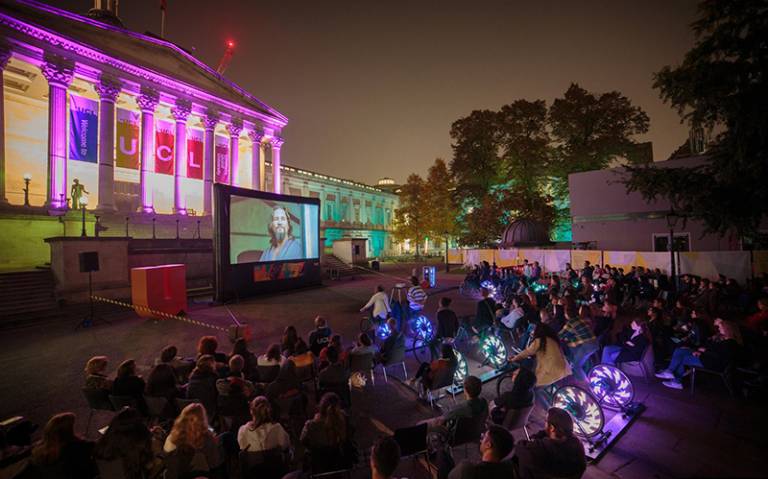Top tips to help save energy this winter
7 November 2022
UCL is implementing a range of energy and carbon-saving initiatives on campus, but we need your help to make them a success. Find out about our tips to save energy on campus and at home.

Tackling the energy and climate crisis in one
With the doubling of energy bills since the academic year begun, UCL is expected to pay almost £50 million on energy this year. A sum which could be better invested across UCL.
Alongside this we have made an ambitious commitment to be net zero carbon by 2030. UCL currently ranks first in the University Carbon League and whilst we have reduced our carbon emissions by 29% over the last 10 years, a step-change in our approach to energy saving is required if we are to meet our net zero target: including a 5% energy saving each year.
As our home energy bills are increasing this winter too, we’ve put together some top tips for you to save energy at home and on campus.
What action is UCL taking?
As an institution UCL is taking concerted action to reduce our energy use by 5% this year and help meet our net zero carbon target. These include, but are not limited to:
- Setting up our Switch Off team who are working up some miles around campus in the evening, turning off lights and appliances which have been left on in unoccupied areas. Corridor lighting will be left on to ensure safety and accessibility around campus.
- Adjusting opening hours for some of our buildings following consultation. The Student Centre will remain open for 24/7 studying.
- Fixing faulty controls for lighting, heating, and cooling to tackle historic energy challenges. And putting in more controls for heating, cooling and lighting.
- Prioritising improving the campus’ insulation and upgrading more efficient heating, colling and ventilation as part of UCL’s next transformation programme.
A community making change possible
Our global community is already doing a lot to take action on the climate crisis and to reduce UCL’s energy consumption.
Our academics are undertaking cutting edge research on climate change (see UCL’s Climate Hub), teachers are embedding sustainability into the curriculum, 80 departments completed UCL’s sustainability engagement programmes Green Impact and LEAF, 150 students volunteered as sustainability ambassadors last year and the Climate Action Society is one of the largest societies at UCL (see the Student Union’s Sustainability Hub).
What’s next?
Stay tuned for our annual big Christmas Switch Off in December, an energy saving competition whereby winners will receive prizes and the launch of a bigger energy saving campaign in January.
 Close
Close

